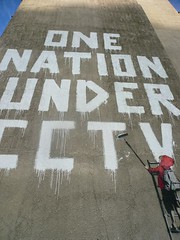
On the 27th of March next year all UK households will be compelled by law to fill in a Census.
I admit that I get more worked up about this sort of thing more than most people. The arrogant presumption that we are somehow state property, the compulsion to complete it & the sheer impertinence of the questions being asked are all things that stick in my craw.
With all else that’s going on – ID cards, mass surveillance, not to mention badly written laws made to put minority interests ahead of the citizenry – it seems that the census hasn’t yet appeared on the radar of most civil liberty campaigners.
However, as with previous years the number of questions has increased (34 in 1991, 41 in 2001). This year, there will be 56 questions prying into every aspect of your life.
Ostensibly a census is about resource allocation, but if that was the case the only question the government can legitimately ask is “How many people live in your house?“.
Gender is irrelevant as this is more or less going to be an even split. Birth rate isn’t going to suddenly shoot up so there’s also need to ask about the number of children.
I’d argue that even this one question isn’t really required as any areas which have resource problems can be identified more readily (and I’d argue more accurately) by deriving the information from other sources – class sizes, waiting times at hospital etc.
Some of the questions being asked
Further details of the census can be found here.
Many of the questions being asked certainly do not have anything to do with resource allocation.
For the first time you will be compelled to disclose any other passports you may have. Also, if you’ve previously lived out of the country you will also have to say when you came into the country and for how long you intend to stay.
You will also be compelled to give the names and addresses of any guests you have staying over on the evening of the census, as well as their sex and date of birth – which has led some to call this the “Snooper’s census“.
Compulsion
You are required by law to answer these questions, and if you choose not to answer these questions – questions which in my opinion the government has no business asking – you will have committed a criminal offence and receive a stiff penalty.
Worse still, the contract for processing the data has been handed to the arms manufacturer and surveillance company Lockheed Martin, which has already raised some eyebrows.



